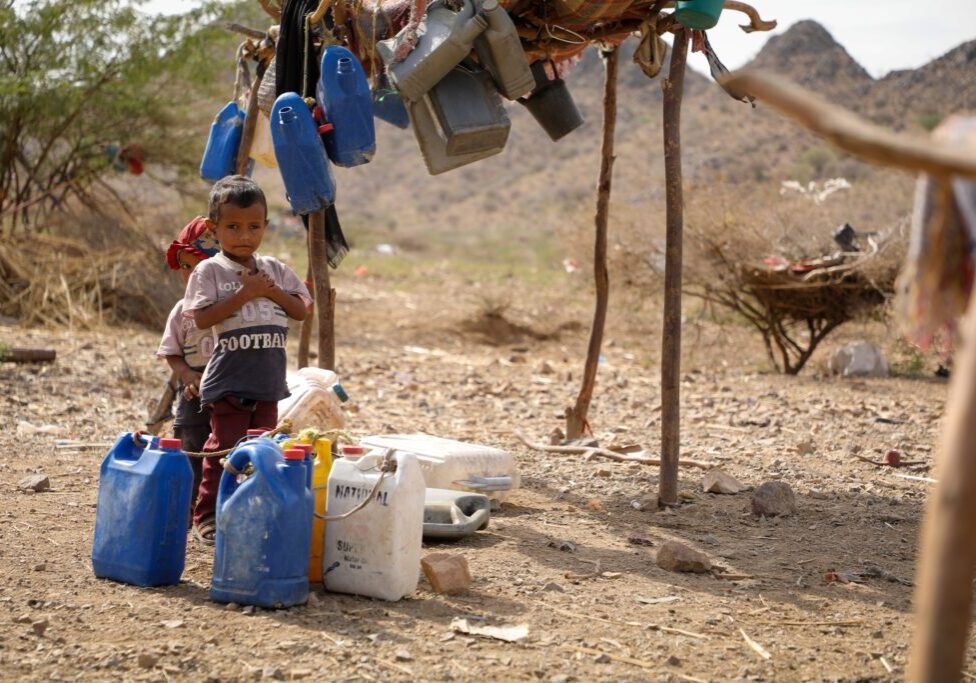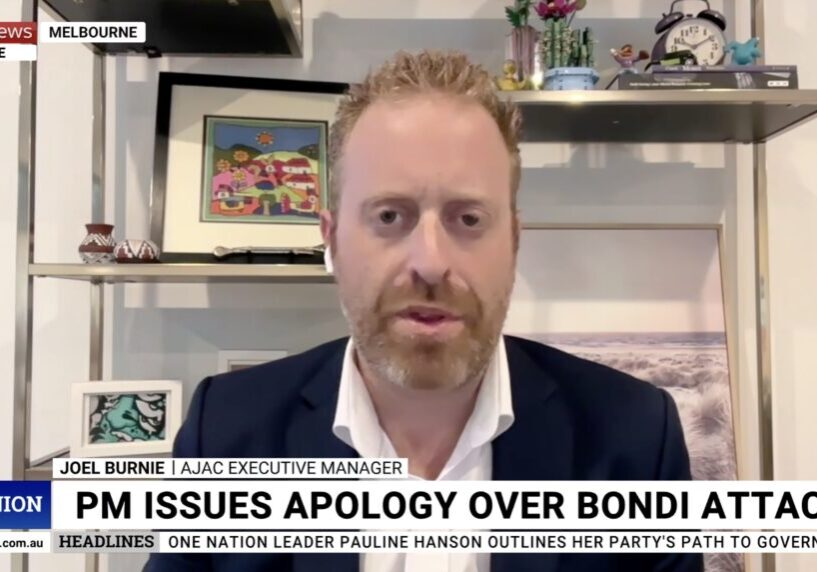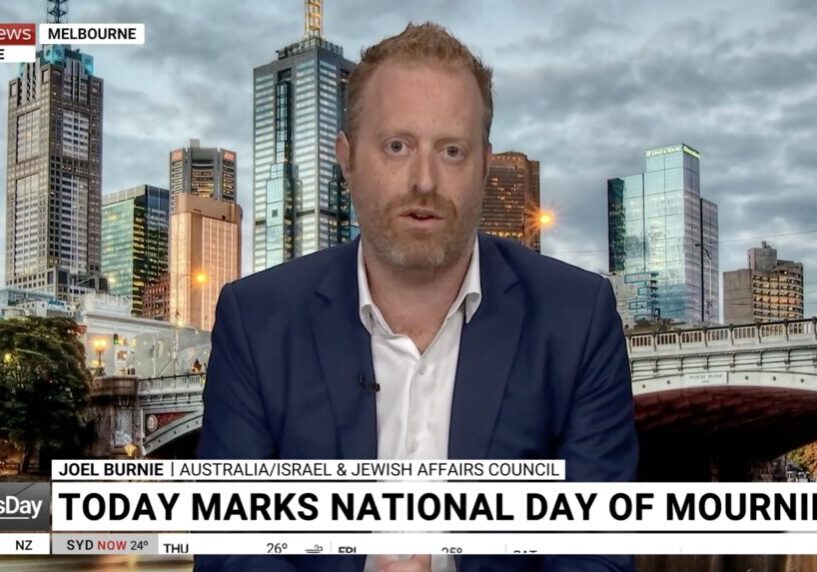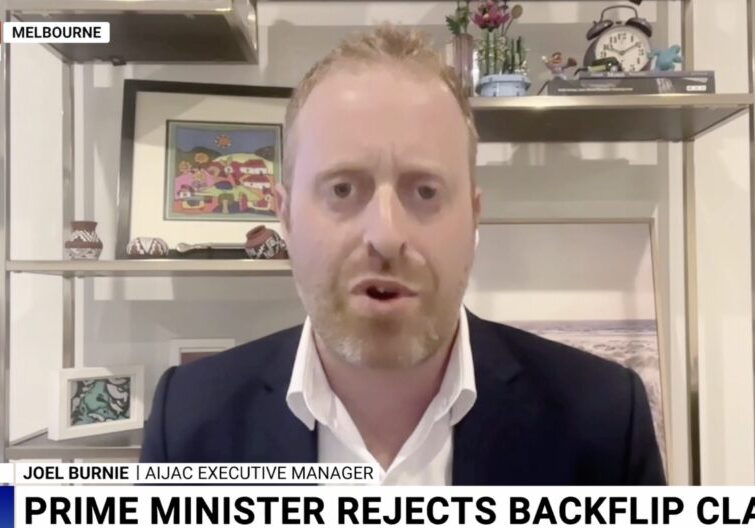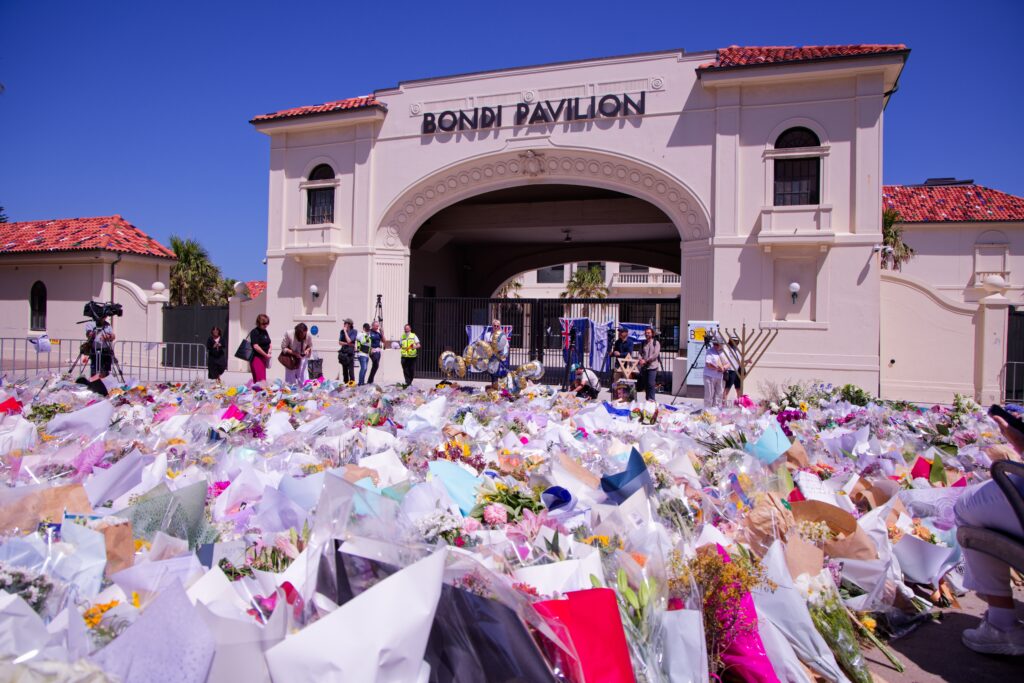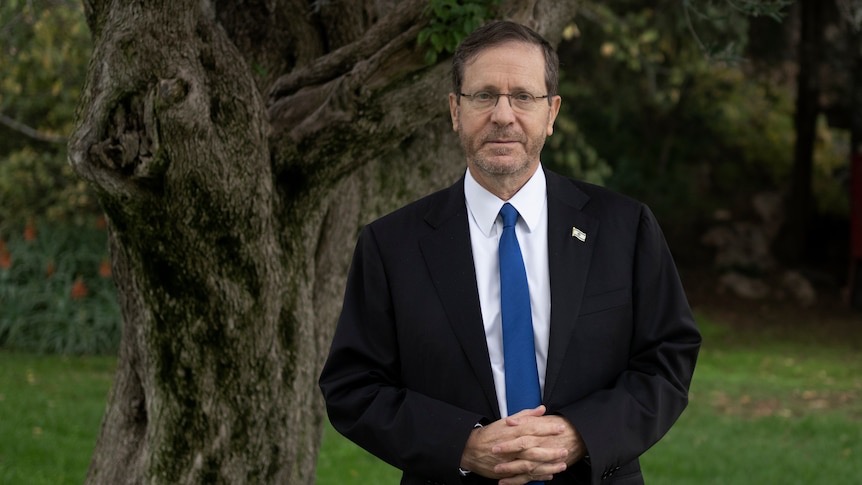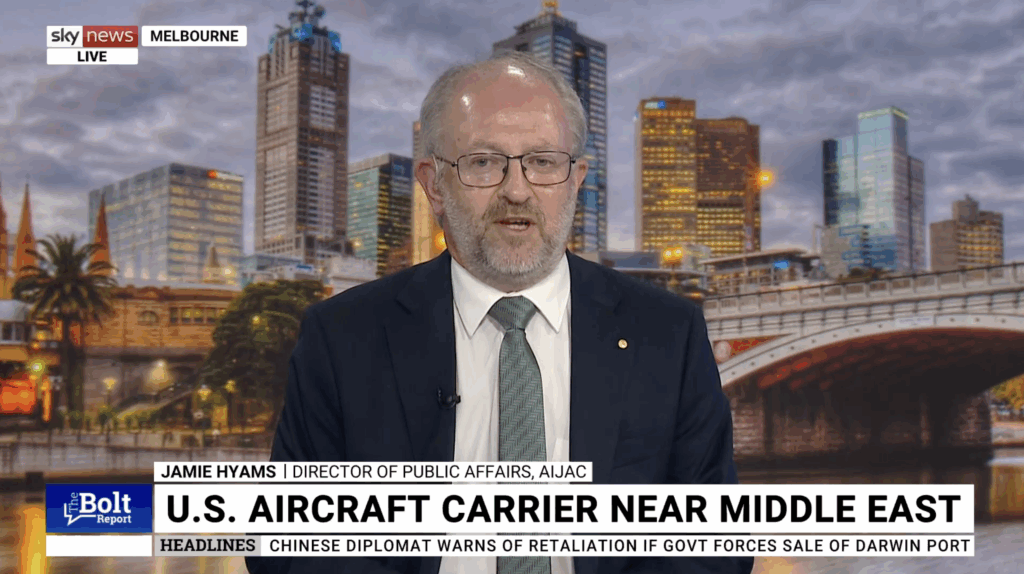FRESH AIR
Laughing all the way to the postal bank: The LaRouchites in the 2022 Election
May 17, 2022 | Judy Maynard

One political party you won’t be hearing much about before, during or after the upcoming federal election on May 21 is the Australian Citizens Party (ACP). This is despite the fact that it is one of the longest established parties contesting this election and, surprisingly, one of the best funded.
Until recently it was known as the Citizens Electoral Council (CEC), an offshoot of the political movement started by US conspiracy theorist and convicted fraudster Lyndon LaRouche, who died in 2019. LaRouche was notorious for his conspiracist views – relating to, for example, the Queen and Prince Phillip, the British generally, and a cabal he believed controlled world capitalism, include drug trafficking – and for his antisemitism.
Despite fielding candidates in just about every federal, and many state, elections over the course of the past three decades, the ACP has prodigiously failed to garner many votes, let alone get a representative elected to Parliament.
This is in contrast with other small populist parties such as Pauline Hanson’s One Nation (PHON), Katter’s Australian Party (KAP), and the Jacqui Lambie Network (JLN), all of which attained representation in the most recent federal parliament.
The latest entry on the Australian Electoral Commission Transparency Register from February 2022 reveals that in the previous financial year, PHON raised $375,735, KAP $908,171, and JLN $458,428.
Yet during the same period the ACP received a whopping $2,293,779, making it the most “cashed-up” political party in the country after the four majors – the Liberals, Labor, Nationals and Greens.
Yet in the 2019 Federal election, the CEC (the ACP’s previous name), ran in only two seats for the lower house and received a tiny 2,834 first preference votes nationwide (0.02%). Results in the Senate were not much better: NSW – 0.03%, QLD – 0.07%, VIC – 0.09%, SA – 0.18%, WA – 0.08%, TAS – 0.10%.
This time around, the ACP has put up candidates in 8 lower house seats – Cunningham, Robertson and Sydney in NSW; Chisholm, Hawke, Mallee and Nicholls in Victoria; and Lingiari in the Northern Territory – and has Senate candidates in every state except Tasmania, as well as the NT.
Lots of funds, few votes
The ACP seems to have hit on a formula for raking in funds without achieving commensurate significant numbers when it comes to votes, the usual metric of political success. The party’s founder and leader Craig Isherwood says it’s all due to “a lot of hard work”.
Isherwood, who founded the CEC in 1988 together with his wife Noelene and – in his words – “a couple of other [unnamed] extraordinary Australians”, is taking yet another shot at a Senate spot.
The ACP was from the start a populist party, founded on the back of the global share market crash of October 1987 and a period of high interest rates and inflation.
It also espoused conspiracy theorist elements that brought it into the lunar orbit of the Larouche Movement, leading it to become the US cult-like group’s Australian satellite. The belief that global elites control international events and are pushing the world into war and economic crisis, and a dualistic world view that pits the virtuous against those who seek to benefit themselves and harm others, were common ground.
Isherwood recounts, “Simply by default, as we knew no better at that time, we were a ‘populist’ movement. However, many of us who formed the CEC also held a deep commitment to fight for our sovereignty, and a disgust for the colonialism we still suffered as part of the British Empire—oops sorry, ‘Commonwealth’.”
Today the ACP describes itself as “an independent grassroots party, dedicated to the principle of the ‘common good’, putting the welfare and prosperity of the people ahead of corrupt banking and political vested interests.”
Populism without popularity
ACP policies, claims Isherwood, “oppose the tyranny of those who wish misery on the world by reducing human beings to less than beasts, inducing them to accept less than their true human potential, and denying justice, in all its forms, to those who need it.”
“This”, said Isherwood at the party’s campaign launch on Feb 10 this year, “does not make us popular.”
He continued (at 18:25) “We are constantly shining lights on these cockroaches in our society who hide under the fridges of bureaucracy or … in the drawers of the financial establishment after imposing tyrannical actions and injustices on our people.
“There you have a paradox: we’re not in politics to be popular. We reject the oligarchical principle where we see it which is in practice a self-appointed and often unelected elite dictating the terms of the quality of life over the masses or the vulnerable. We provide the solutions for citizens to act and fight against them.”
This is quite ironic; if any grouping typifies the unelected, it’s the ACP, comprehensively rejected at the ballot box election after election.
As for its ability to provide solutions, the ACP has demonstrated a tendency to somewhat embellish its resume.
Isherwood says that in 1988 the CEC won its “first seat”, in a by-election in the Queensland state electorate of Barambah. He neglects to mention it was his party’s only electoral victory, and a very short-lived one at that.
Barambah was the ultra-safe seat of the National Party’s long-serving Queensland Premier Joh Bjelke-Petersen, who was eventually forced to resign under pressure from the public and members of his own government following his failed ‘Joh for PM’ campaign and the Fitzgerald corruption inquiry.
Held on April 16 in this volatile climate, the ensuing by-election resulted in a major upset for the sitting Nationals, a backlash caused in part by the resentment of some who continued to support Bjelke-Petersen. Three of the four candidates were conservatives. The Nationals’ Warren Truss won 41.27% of the primary vote. However former National Trevor Perrett, running for the CEC, received a massive 31.59% of primaries, and ended up winning largely on Labor Party preferences, 89% of which flowed to him.
In his maiden speech to Parliament on 30 August,1988, Perrett stated “The eyeball-to-eyeball, face-to-face campaign which the Citizens Council waged in Barambah was a whirlwind success. The ‘sleeping giant’ has been roused, and in the future he will place in the House many more Independents who will be sworn to be free of corrosive and poisonous party politics.”
A mere four months later Perrett rejoined the Nationals, fearing that the CEC was trying to use him “to push their own agenda, an extremely right-wing agenda.” That was the last time the ACP was to have its fingernail on ‘power’.
Mythmaking and ALP name-jacking
ACP history also promotes the mythology that “By late 2000, the virtually-defunct One Nation was resuscitated by [Kerry] Packer and [Rupert] Murdoch, in particular to deflect votes in the Western Australia state election of Feb. 10 2001, where at least one LaRouche-affiliated candidate, the CEC’s Jean Robinson, looked like an excellent bet to win the seat of Wagin. In fact, the One Nation candidate, who only entered the race belatedly, and who drew 20% of the vote without campaigning, told Mrs. Robinson, that had he not entered the race, and given that many other voters for other parties had put her second, she would have won.”
In fact, Jean Robinson did not stand as a CEC candidate in the 2001 WA state election, but rather for the Curtin Labor Alliance, a coalition between the CEC and another minor party, the Western Australian Municipal Employees’ Union.
The Australian Labor Party (ALP) expressed its outrage at the time over the appropriation of the name of the former Australian Labor Prime Minister John Curtin, with former ALP federal minister and polymath Barry Jones calling it “ludicrous” and “absurd”. Curtin, he said, was “a great iconic figure, one of the figures who helped to bind Australia together during the war, the fight against fascism.”
The Curtin Labor Alliance was also denounced at the time as “little more than a front for racists” by Alan Gold of the B’nai B’rith Anti-Defamation Commission, who said it represented “the continuing process of the extreme right or the extreme left of politics. Putting on different clothes, putting on a different appearance, but they’re still the same wolf. They’re still the extremists.”
The ALP also objected to the coalition’s name, arguing that it was likely to mislead and confuse voters into believing the Curtin Labor Alliance was connected to the Australian Labor Party.
This, together with the fact that she was representing two parties and therefore a greater pool of members and supporters, probably goes some way towards explaining why Jean Robinson performed better than usual for a CEC candidate. Even so she received only 846 votes out of a total of 11,401 formal votes cast, or 7.4% of the total, and came fifth out of the six candidates standing. Hardly a near miss.
No matter because, according to the ACP, lacking any actual elected representatives has hardly been a hindrance. At his campaign launch Isherwood informed his video audience (at 19:22) that in the past four years “we’ve had three bills introduced into the Federal Parliament and achieved six Senate inquiries… We’ve done that without having any elected members in Parliament… but we’re hoping to change that.”
Constant campaigns bignote ACP “achievements”
It is quite obvious that without elected members in Parliament it is impossible for the ACP to have introduced bills or initiated Senate inquiries. But the ACP has never been shy about hyping its so-called “achievements” and claiming credit for others’ efforts.
The ACP has certainly been campaigning frantically in the public sphere, if not the hustings, in the lead up to this election, sending out media releases and newsletters to a large recipient list almost daily.
As AIJAC has previously described, the ACP tried to exploit the public’s interest in former CEO Christine Holgate’s departure from Australia Post to promote its policy of establishing a people’s postal bank, misleadingly championing Holgate as if she were a proponent. The ACP’s cameo in an episode of ABC TV’s “Four Corners” about the Holgate case saw them engage in silly and opportunistic big-noting of its“role in exposing the truth about AusPost”.
Another campaign in which the ACP claimed a leading role was the opposition to the Government’s so-called cash ban bill, which had been based on a recommendation by the black economy taskforce to limit cash transactions to $10,000 to help prevent GST and other tax avoidance.
The bill was eventually dumped due to opposition across the political spectrum, but the ACP claims without much justification to have played a “leading role” and depicts itself amongst those “leading the resistance”, its “fight against the totalitarian cash ban… hitting home”.
An abiding feature of the Larouchian, and by extension ACP, outlook is that only they can save society from the constant state of crisis in which it exists, from the precipice of imminent financial or other disaster on which it teeters. Were they not prophets of doom they would be nothing, and cease to exist.
Federal election platform policy number five – “No ‘bail-in’ of bank deposits” – is one such example. At the launch, Craig Isherwood explained bail-in as “an attempt by the international financial oligarchy centred in the city of London and Wall Street to steal people’s deposits.” He claimed the ACP “raised merry hell” when it got wind, years in advance, of a supposed move to introduce legislation in Australia that would enable bail-in.
According to the ACP website the exposure draft of the claimed bail-in bill was released by the Government “on a Friday afternoon when there would be no media attention. Only a sharp-eyed CEC staffer spotted it and recognised it as bail-in, enabling the CEC to mobilise a massive nationwide campaign against it [the need for] which continues to this day” because the Government “snuck” it through the Senate.
The conspiratorial claims made about the bill’s content and progress have been comprehensively refuted by legal experts.
The ACP’s cash ban bill campaign dovetailed nicely with its bank bail-in obsession. According to Larouchian logic, the former would force people to transfer funds via banks. Once in the system, the funds would be trapped and could be used to “bail-in” and prop up the banks.
Shills for China and backers of Putin
The ACP’s election platform promotes two positions relating to foreign policy that recur repeatedly in its literature: deference to the Chinese Communist Party, and hostility to the US and UK.
According to the ACP’s twisted world view, it is China, and fellow travellers like Russia, that are good and peaceful global citizens, and the US, the UK and a subservient Australia that are the aggressive warmongers.
While China pursues its geopolitical goals through its Belt and Road Initiative (BRI) and territorial expansion in the Pacific, the ACP platform calls on Australia to “end the dangerous ‘drums of war’ rhetoric pushing Australia to join the USA and UK in confronting China, and prioritise diplomacy to resolve tensions respectfully.,” Further, it demands Australia assert “an independent foreign policy in Australia’s national interest” that includes opposing “the dangerous Anglo-American strategic escalation against China and Russia,” withdrawing from the Five Eyes intelligence-sharing partnership, and “joining our regional neighbours and most of the rest of the world in participating in the Belt and Road Initiative to raise global living standards through infrastructure investments.”
ACP’s National Research Director Robert Barwick, who is standing with Craig Isherwood on the party’s Senate ticket for Victoria, recently gave an interview on YouTube headed “Why Australia is mad at China-Solomon Islands cooperation”. His interviewer was Li Jingjing, a reporter for CGTN, the international division of Chinese Communist Party state-owned media, but not identified as such on this clip.
Barwick told Li (from 15:00) “Our government has been over the top in its condemnation of Russia for invading Ukraine. They have been so moralising, it’s as if we, Australia, are pure as the driven snow.”
He continued, “(Australia’s) been saying that Russia’s position that Ukraine is its red line – because if Ukraine has a deal with NATO, that is an existential threat to Russia and therefore that cannot happen – we’ve been saying Russia’s position is illegitimate. Yet now we are saying that the Solomon Islands is our red line, even though it’s not on our border. Ukraine is one millimetre from Russia’s border. This is 2,000 kilometres away over an ocean, yet somehow that is our red line. It is completely hypocritical and in fact the language of our politicians has absolutely justified everything that Vladimir Putin has done in Ukraine this year.” “Exactly!” responded Li.
At his party’s February launch, Craig Isherwood said (at 2:10:32) that the first thing he would do in Parliament is “I’d congratulate President Xi Jinping and President Putin for protecting and standing up for their citizens and for their sovereignty,” a curious priority for a prospective Australian senator.
But then the ACP is a curious party, which derides “unelected elites” but supports dictators and leaders of single-party states against Western democracies. It opposes globalisation, yet promotes China’s BRI.
And it fields candidates in general elections, but other than the exceptional circumstances pertaining in the Barambah by-election of 1988, the ACP has never come close to achieving success, and doesn’t really seem to care.
And why should it? It’s laughing all the way to the postal bank.
Tags: Australia, CEC, Citizens Electoral Council, Far Right






